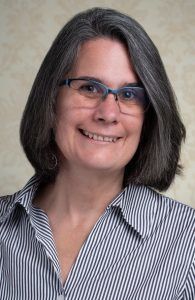Social Justice Webinar: Saturday, March 20, 2021 – Restorative Practices: Learning About Reciprocity, Courage, and Inclusion
Union Institute & University’s Ph.D. program is pleased to present Restorative Practices: Learning About Reciprocity, Courage, and Inclusion on Saturday, March 20, 2021, at 11 a.m. (ET).
Join Ph.D. alumna Dr. Linda Kligman, recipient of Union’s 2020 Virgil A. Wood Award for Excellence, and moderator Dr. Stewart Burns, professor in Union’s Martin Luther King Jr. Studies specialization and chair of the Ethical & Creative Leadership major of Union’s Ph.D. in Interdisciplinary Studies program. Dr. Burns is also a noted King scholar.
Dr. Kligman earned her Ph.D. in Interdisciplinary Studies with a concentration in Ethical and Creative Leadership and a specialization in Martin Luther King, Jr. Studies in 2020. Her dissertation “Widening Circles: A Grounded Theory Study of Workplace Leadership,” also earned her the Marvin B. Sussman Award, an award given annually to recognize excellence in dissertations. Her research utilized grounded theory to examine restorative practices within organizational leadership.
Restorative practices is an emerging social science that studies how to strengthen relationships between individuals as well as social connections within communities. Dr. Kligman defines restorative practices as “… a lens to look at relationships and bring out the best in humanity. We can build on others’ ideas and work collaboratively. Solutions can’t be achieved unless our dignity and those we work with are intertwined. We need to hear each other and listen to each other. Everyone’s voice is valuable.”
Dr. Burns explains Dr. Kligman’s work this way. “Utilizing the complex methodology of constructivist grounded theory, Dr. Kligman interviewed a group of restorative justice practitioners in the U.S. and beyond to develop an understanding of how restorative justice principles and practices could more fully embody participatory learning in order to enhance relational and group-centered leadership in the restorative justice context. She has advanced the legacy of Dr. Martin Luther King Jr. by demonstrating the influence of Kingian principles on the development of restorative justice, as well as the applicability of the group-centered leadership philosophy of Ella Baker and the participatory learning process exemplified by the Highlander Center in Tennessee. The incorporation of “soul force” principles and methods in restorative justice that she has pioneered will likely strengthen restorative justice practices in its various settings. It also addresses criticisms of restorative justice, especially whether its practices are more about bolstering or transforming the status quo; and whether restorative justice has the potential to help bring about structural and systemic change. [Her dissertation was] an absolute tour de force!”
As an emerging field, restorative practices proposes a participatory approach to learning and decision-making. Dr. Kligman says that restorative practice calls for an inclusive approach – sharing power – to address community issues.
She explains, “In order to be creative we must work with people different than ourselves. The more that power is shared, the more people gain and interact better. We can be more authentic, recognizing the dignity in one another, and become mutually accountable to ourselves and others. We can create relationships where we respect each other and bring high expectations and support to approach one another. You get caught empowering people.”
Union was chosen for her doctoral studies on the recommendation of a friend. “A friend suggested I look at Union because of its commitment to social justice. I was so impressed by Union’s approach to power through influence, and the MLK Studies specialization sounded so interesting. I had a very rich experience at Union.”
Among other ideas and practices, Dr. Kligman hopes participants will learn from the March 20 webinar that they can be more authentic and thus, improve their interactions with their colleagues.
About Linda Kligman, Ph.D.
Dr. Kligman is vice president for Administration at the International Institute for Restorative Practices (IIRP) Graduate School in Pennsylvania. She provides leadership for all non-academic staff. She is deeply committed to supporting faculty, students, and staff by using restorative principles with an eye to continual improvement.
In addition to her Ph.D., Dr. Kligman holds two Bachelor of Science degrees, a B.S. in Civil Engineering and a B.S. in Appropriate Technology from Drexel University, and a Master of Science in Restorative Practices from the IIRP Graduate School.
Linda has two decades of experience in leadership and development. She worked with LaSalle University’s Nonprofit Center as instructor and consultant, was principal of a marketing firm, and executive director of a community-revitalization agency.
Union is a global leader in providing higher education degrees for the adult learner. Your Goals. Your Success. Your Union. We’ve Got U! Visit myunion.edu to learn more.
